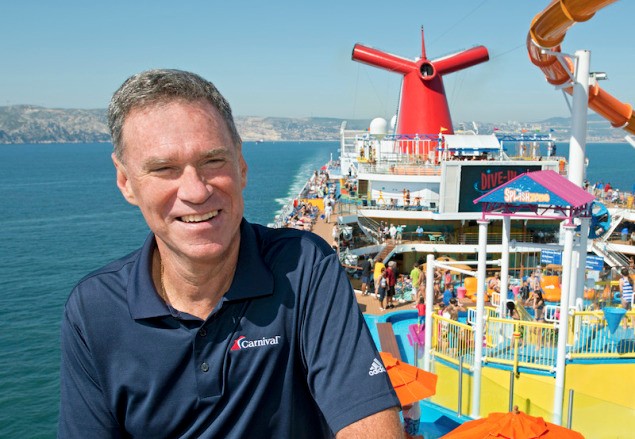γράφει: capt odysseas lekatsas
ΝΙΟΝΙΟ ….
ΔΕΣ ΑΥΤΟ …ΤΙ ΛΕΕΙ Ο ΠΟΙΗΤΗΣ ΜΕΣΩ TRADE WINDS 6 -2-15 ??? ΑΝ ΔΕΝ ΠΑΝΕ ΤΑ ΚΑΥΣΙΜΑ $ 200 ΤΑ ΠΡΑΓΜΑΤΑ ΕΙΝΑΙ ΔΥΣΚΟΛΑ ……
ΚΑΙ ΕΙΝΑΙ ΔΥΣΚΟΛΑ ΓΙΑ ΚΑΘΕ ΠΛΕΟΥΜΕΝΟ ( ΠΛΟΙΟ) ΑΝΕΞΑΡΤΗΤΑ ΑΠΟ ΜΕΓΕΘΟΣ, ΕΙΔΟΣ ΦΟΡΤΙΟΥ, ΣΗΜΑΙΑ, ΠΛΗΡΩΜΑ …….. ΕΠΙΒΑΤΗΓΟ, CONTAINER, TANKER, ΦΟΡΤΗΓΟ, ΤΡΑΤΑ, ΓΡΙΓΡΙ Κ.Λ.Π. ΑΚΟΜΑ ΚΑΙ ΓΙΑ ΤΙΣ ΒΑΡΚΕΣ ΜΑΣ ….. ΝΑ ΠΑΜΕ ΓΙΑ ΒΟΛΤΑ ΤΟ ΚΑΛΟΚΑΙΡΙ ΓΙΑ ΨΑΡΕΜΑ ΣΤΗΝ ΑΤΟΚΟ, ΚΑΣΤΟ, ΣΚΟΡΠΙΟ, ΚΑΛΑΜΟ, ΜΕΓΑΝΗΣΙ Κ.Λ.Π.
ΑΝ ΔΕΝ ΠΑΕΙ $ 200 ΤΟΤΕ ΟΛΑ ΘΑ ΠΗΓΑΙΝΟΥΝ ( ΑΝ – ΟΠΟΤΕ ΠΗΓΑΙΝΟΥΝ ) Α Ρ Γ Α ,,, ΟΣΟ ΠΙΟ ΑΡΓΑ ΜΠΟΡΟΥΝ ΣΥΜΠΕΡΙΛΑΜΑΝΟΜΕΝΩΝ ΚΑΙ ΤΩΝ ΦΕΡΡΥ ΑΠΟ / ΠΡΟΣ ΘΙΑΚΙ – ΚΑΦΑΛΟΝΙΑ (ΕΚΤΟΣ ΚΑΙ ΠΑΡΟΥΝ ΕΠΙΧΟΡΗΓΗΣΗ ΑΠΟ ΤΟ ΚΡΑΤΟΣ) .
ΣΥΓΝΩΜΗ ΑΛΛΑ ΑΥΤΗ ΕΙΝΑ Η ΩΜΗ ΠΡΑΓΜΑΤΙΚΟΤΗΤΑ ΚΑΙ ΕΠΗΡΕΑΖΕΙ ΟΛΑ ΤΑ ΠΛΟΙΑ ΠΑΓΚΟΣΜΙΩΣ.
ΜΑΣ ΑΡΕΣΕΙ ΔΕΝ ΜΑΣ ΑΡΕΣΕΙ …ΚΑΙ ΕΜΕΝΑ ΠΡΩΤΟΥ ΔΕΝ ΜΟΥ ΑΡΕΣΕΙ ΚΑΘΟΛΟΥ .
ΕΚΤΟΣ ΚΑΙ ΒΓΑΛΟΥΜΕ ΔΙΚΑ ΜΑΣ ΠΕΤΡΕΛΑΙΑ ΑΝ ΚΑΙ ΟΤΑΝ … ΖΗΣΕ ΜΑΥΡΕ ΓΑΙΔΑΡΕ ….. ( ΛΙΓΟ ΔΥΣΚΟΛΟ ΝΑ ΜΑΣ ΑΦHΣΟΥΝ / ΕΠΙΤΡΕΨΟΥΝ ΤΗΝ ΟΙΚΟΝΟΜΙΚΗ ΕΚΜΕΤΑΛΕΥΣΗ) ΚΑΙ ΕΧΟΥΜΕ ΔΙΚΗ ΜΑΣ REFINERY ΣΤΗΝ ΟΞΥΑ ..
ΚΑΙ ΜΕΤΑ ΞΥΠΝΗΣΑΜΕ ΑΠΟ ΤΟ ΟΝΕΙΡΟ ……
 Bodouroglou sees fast steaming only at $200 per ton
Bodouroglou sees fast steaming only at $200 per ton
Greek owner believes this is the level to which fuel prices must fall for speeding up ships to make commercial sense — but that scenario is considered unlikely
Bunker prices must fall below $200 per metric ton for dry bulk ships to abandon slow steaming at today’s abysmally low freight rates, according to shipowner Michael Bodouroglou.
With bunker costs collapsing in the wake of sliding crude oil prices, concerns are mounting that operators might be tempted to increase vessels’ sailing speeds — a move that would increase the supply of ship capacity and depress freight rates even further.
The price of International Fuel Oil (IFO) 380 fuel in Singapore, the world’s biggest bunkering hub, stood at $282.25 per ton last week, almost half its price six months ago. In Rotterdam, the price was as low as $238.25, according to Seasure. As TradeWinds went to press, Singapore IFO 380 was priced at $338 per ton.
Bodouroglou, however, says fast steaming is “not of concern at this moment”. Optimum ship speeds depend on freight rates as well as on bunker prices, he said during a recent conference in Athens, meaning that fuel prices would have to fall even further for faster steaming to make commercial sense.
Assuming a fuel price of $250 per ton, a supramax ship earning $7,000 per day has an optimum speed of 10.2 knots, which increases to 11 knots if the ship’s daily income gets to $10,000, says Bodouroglou, who heads New-York-listed firms Paragon Shipping and Box Ships.
“If fuel prices fall further and move towards $200 and below, then, yes, speeds will probably increase and excess supply of tonnage will be created,” Bodouroglou told the Naftemporiki Shipping Forum in Athens.
In response, a bunker trader commented to TradeWinds: “Well, prices will probably never drop to that level.”
Bodouroglou estimates excess ship supply to be at about 20%. “Especially in the dry bulk sector, I can personally see nothing providing some optimism that there is a possibility the market can be fixed from its currently very unpleasant levels,” he said.
However, low fuel prices, if they stay at the current level, might give shipping a boost by stimulating global economic growth.
“This might be an unexpected game-changer,” Bodouroglou said.
Another boost may come from the European Central Bank (ECB) and its latest bond-buying programme, shipowner Ion Varouxakis told the same event. The ECB’s monetary easing announced last month could speed up the restructuring of European banks and encourage them to resume trade financing, said the chairman of New-York listed Freeseas.
“Before the crisis, two-thirds of trade financing in Asia came from European banks — this disappeared overnight,” Varouxakis said.
In the short term, the only way for the dry bulk market to go is up, maritime economist Martin Stopford told participants. “It is so low now that there’s a good chance it’ll pick up again in February, March — a spike is quite usual.I’d be very surprised if it stays where it is much longer,” said Stopford, who is non-executive president at Clarkson Research Services.















